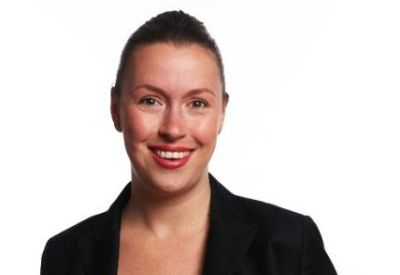Meet Sarah Comeau ’11, Co-Founder of School Justice Project: Using Special Education Law to Ensure Access to Education for Incarcerated Students with Disabilities

Sarah Comeau ’11 is Director of Programs and Co-Founder of School Justice Project (SJP), a non-profit organization that uses special education law to ensure access to quality education for older students with special education needs who are involved in DC's justice systems, both during incarceration and throughout reentry. Federal special education law guarantees students with disabilities access to education through age 21. However, court-involved students are routinely denied both education services and legal assistance to enforce their rights. SJP, in fact, is the only organization of its kind nationwide that strives to achieve its mission through three key programs: Direct Representation; Community Outreach & Legal Trainings; and Systemic Advocacy & Policy. Through embedding in its clients’ underlying criminal defense case, SJP has achieved improved court outcomes, including decreased incarceration, increased use of community-based alternatives to incarceration, and shorter jail or prison sentences. Through access to counsel, students are able to access both the justice and education they are routinely denied.
Sarah Comeau recently sat down with Washington College of Law’s Office of Public Interest to share her school experience and to offer advice for students pursuing a career in public interest law.
What activities and experiential learning opportunities were you involved in as a WCL student that helped you prepare for this work?
I had what I consider to be diverse experiences at WCL. From the more “traditional” law school activity of a Journal to experiencing WCL’s unique abroad offerings. Ultimately, the activities and experiential learning opportunities that I participated in during my time at WCL prepared me to not only obtain my dream job out of law school but also gave me the skills I needed to launch my own organization and create a new model of legal services.
My 1L year was probably pretty typical for a full-time student. I studied. I went to law school with the intentions of practicing international law, with a focus in post-conflict Africa. I was drawn to WCL because of their JD/MA dual degree program (I since dropped the MA). Keeping in line with what was then a desire to go international, I spent my 1L summer in WCL’s Summer Law Program in the Hague, studying international humanitarian law and learning about the international criminal courts. My 2L year was dedicated to international law as well. I was a Research Associate at Public International Law & Policy Group (PILPG). It was halfway through this year that I discovered I wanted to become a public defender. I shifted my focus, and secured a 2L summer position at my criminal procedure professor’s post-conviction criminal defense firm in Maryland. I wrote onto the Journal of Gender, Social Policy, & the Law. I also got my comment published.
During my 3L year, I remained working for my professor for the first semester, participated in the Criminal Justice Clinic, and was a Note & Comment Editor. In my second semester of 3L, I was a research assistant for my clinic professor and I interned with now Chief Judge on the Maryland Court of Appeals, Mary Ellen Barbera. After law school, I was a post-graduate fellow in the Juvenile Services Program at the Public Defender Service for the District of Columbia. Each of these experiences contributed to my development as an attorney and provided me with the skill set needed to identify a critical gap in legal services in DC and co-found and launch a legal services model to fill that hole.
What advice would you give public interest law students?
Be open to different experiences. While it is important to build a resume and get the experiences you need to enter your field of choice, if I did not have diversity of experiences and exposure to different activities, it may have taken me longer to become happy in my career. From a practical and employer standpoint, writing and research skills are very important. Do not be afraid to reach out to practitioners doing work that you think you may be interested in. Many of us would welcome a coffee with a law student to talk about our work. Take advantage of being in school, get to know your professors, participate in as much as you think you can handle without overwhelming yourself.